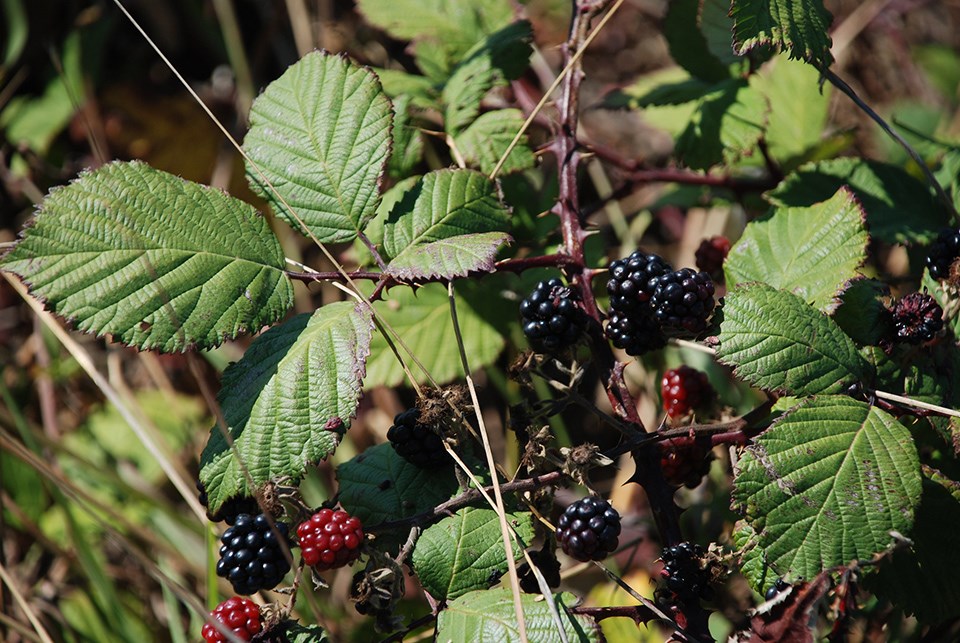Blackberries right off the branch are delicious and are a staple for Tri-City residents in the spring and summer months.
While buckets are filled to the brim and taste buds may be satisfied, the blackberry plant can be a hindrance for the neighbourhoods and the wildlife nearby.
A volunteer team dedicated to preserving and improving the environment is inviting members of the public to help remove the Himalayan blackberry invasive species from Mundy Park in Coquitlam this weekend.
According to experts from the Invasive Species Council of BC (ISCBC), the Himalayan Blackberry plant can disturb local forests, pastures, roadsides and streambanks by crowding low-growing vegetation.
The plants can grow up to five feet tall with canes that stretch to 12 metres wherever they touch the ground, grow white-to-pinkish flowers and large leaves, as well as shiny, hairless blackberries up to two centimetres long.
It also can create bushes — also known as thickets — so dense that it "limits the movement of large animals," the ISCBC explains.
"Thickets can produce 7,000-13,000 seeds per square meter. Himalayan blackberry also spreads by roots and stem fragments, as well as by birds and animals that eat the berries and disperse them."
The Lower Mainland Green Team is set to remove the invasive species for more than three hours rain or shine on Sunday morning (Sept. 19).
A member of the Green Teams of Canada said by partnering with the City of Coquitlam, the non-profit organization hopes this activity will encourage local residents to get outside for their own health's sake and see how they can improve their local ecosystem.





